PRATT Safety Systems has been manufacturing and distributing cabinets throughout Australia and the Pacific region for over 50 years. PRATT was the first company to introduce these cabinets into Australia and has continued under its current family ownership in maintaining its high standards of products and service. All PRATT cabinets are designed and manufactured to comply with all of the relevant Australian Standards.
Dangerous goods are substances with properties that, if not properly controlled, pose potential hazards to health and safety, property, or the environment. These substances can be corrosive, flammable, combustible, explosive, oxidizing, or water reactive. The Dangerous Goods Act 1985 defines the criteria for classifying these substances.
The first step of selecting a storage cabinet is conducting a risk assessment on the type and variety of dangerous goods at your workplace. It is essential that the client identifies the type of dangerous goods and the hazards they present, together with the quantity of chemicals to be stored, then to select the correct class and size of cabinet to suit the chemicals.
When it comes to dangerous goods, one should assess the goods in use by reviewing the SDS (Safety Data Sheet) for each substance, which will outline storage, handling, and disposal guidelines along with any potential health, first aid and emergency response and firefighting measures as well as transport information, the chemical’s stability, potential reactivity, and its environmental effects.
Class 1 – Explosives
Class 2 – Gases
Class 3 – Flammable Liquids
Class 4 – 4.1 Flammable Solids, 4.2 Spontaneously Combustible & 4.3 Dangerous When Wet
Class 5 – Oxidizing Substances And Organic Peroxides
Division 5.1 Oxidizing Substances
Division 5.2 Organic Peroxides
Class 6 – Toxic And Infectious Substances
Division 6.1 Toxic Substances
Division 6.2 Infectious Substances
Class 7 – Radioactive Material
Class 8 – Corrosive Substances
Class 9 – Miscellaneous Dangerous Goods
Each class must be stored separately in their respective class storage cabinets. If you need assistance on conducting audits, undertaking assessments, and in best practices, you may consider engaging a dangerous goods consultant.
Certain chemicals can be stored in metal cabinets, while others are more suitable for storage in poly cabinets. This is determined by what you are storing, the SDS and manufacturers storage recommendations. Keep in mind no material is impervious to all corrosive chemicals.
Types of corrosives that can be stored in a metal corrosive storage cabinet may include:
Corrosives with a pH level closest to neutral - including sodium bicarbonate, sodium chloride, hypochlorous acid.
Types of corrosives that must be stored in a polyethylene storage cabinet may include:
Acids – including nitric acid, hydrochloric acid, sulphuric acid
Alkali – including calcium hydroxide, potassium hydroxide, sodium hydroxide
Spare parts & shelves are available to suit our current indoor metal cabinets, with black recessed handles. Please email info@prattsafety.com.au with the size and class of the cabinet, along with what parts you require.
AS1940 advises on the elimination of sources of ignition from inside the cabinet. Examples include naked flames, exposed incandescent material, electrical welding arcs, mechanical sparks, electrical discharge due to static electricity, and electrical, electronic, or mechanical equipment not suitable for use in hazardous areas. It also advises on the exclusion distance of 3m outside the cabinet.
We do recommend the cabinet be earthed to reduce the potential of Static Electricity discharge, which can be a source of ignition. All our metal indoor cabinets are supplied with a grounding wire and connection for ease of arranging. However, ultimately, this is a decision based on the site during their risk assessment.
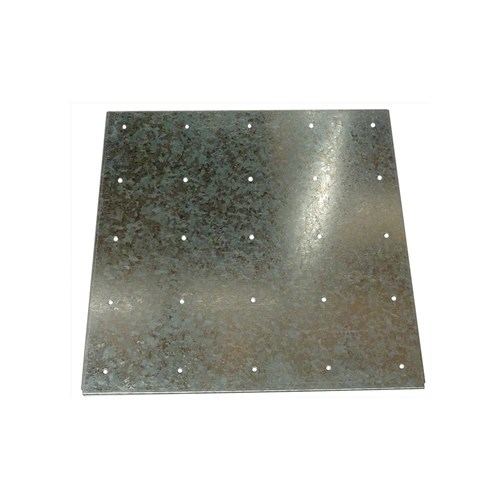
Shelf, Suits AS 1 Door 350L Cabinet
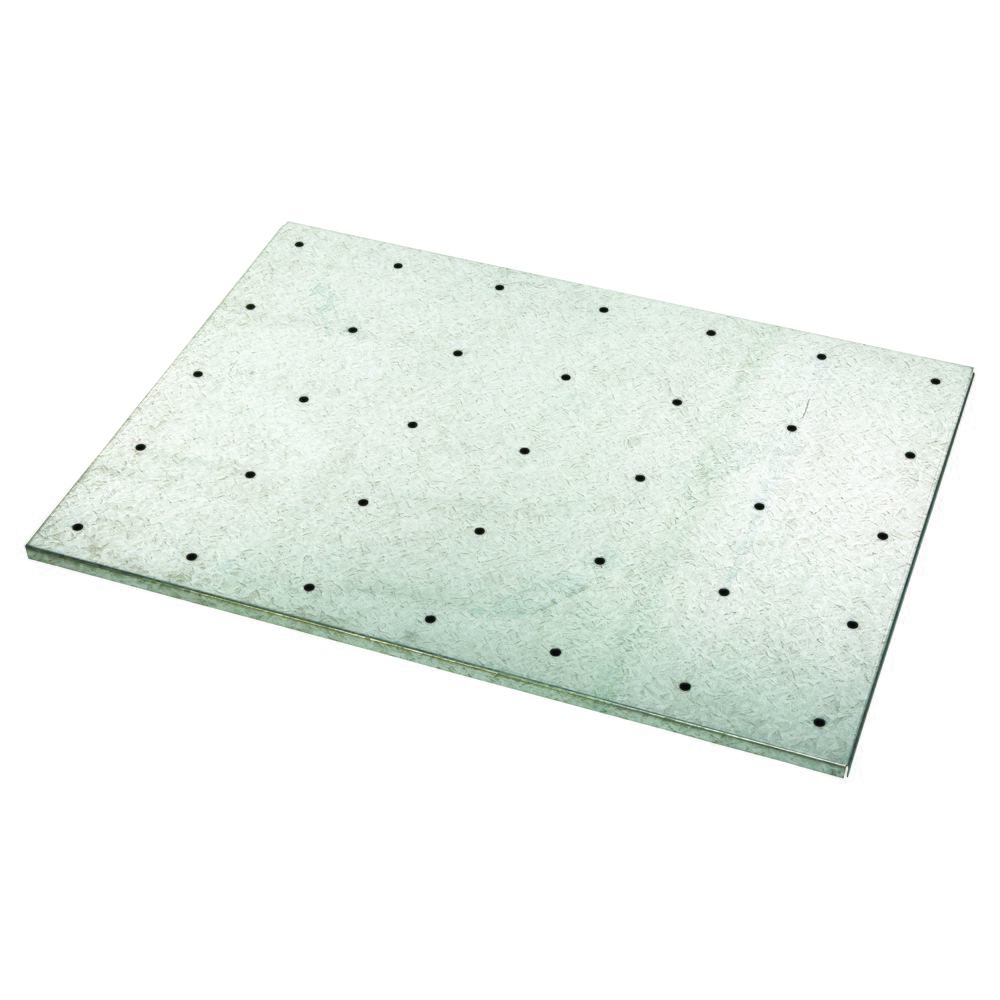
Shelf, Suits AS 425L Cabinet
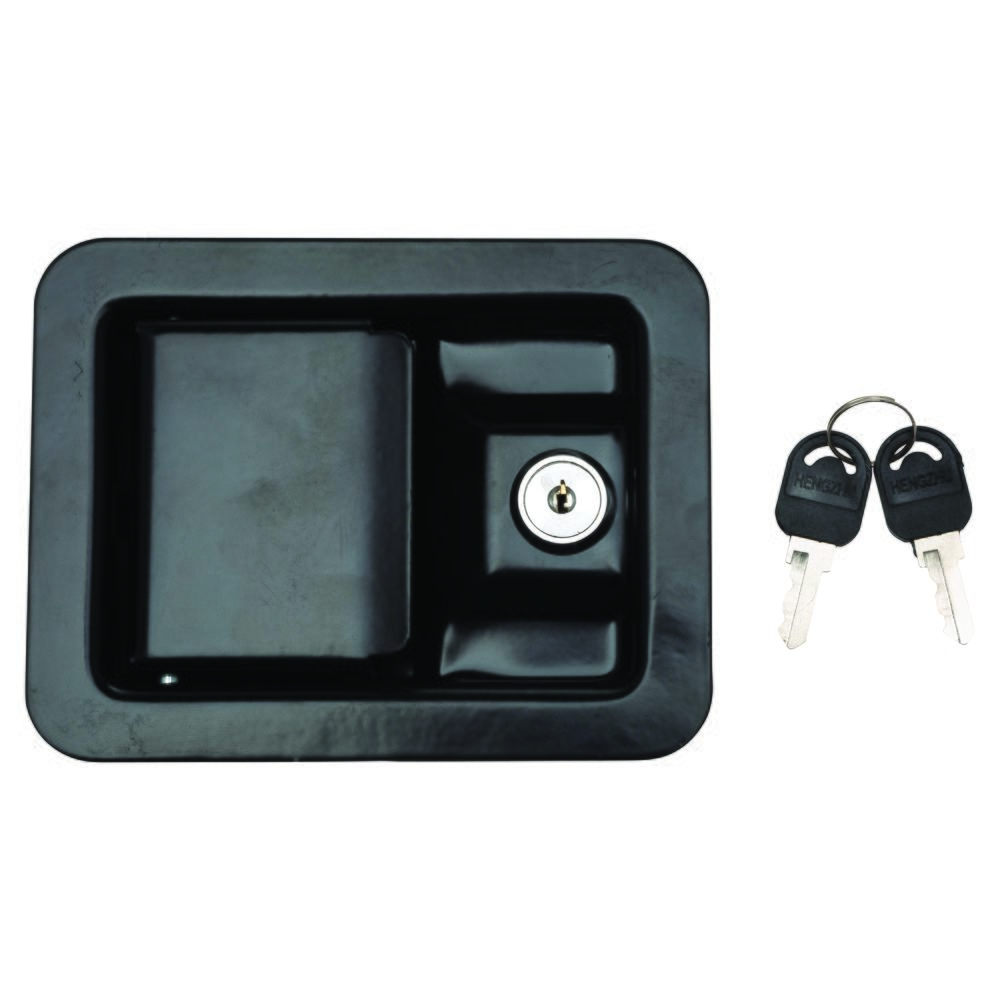
Pratt Recessed Door Handle And Keys - Latching Suits AS, AST, CL9 & ASPH Cabinets
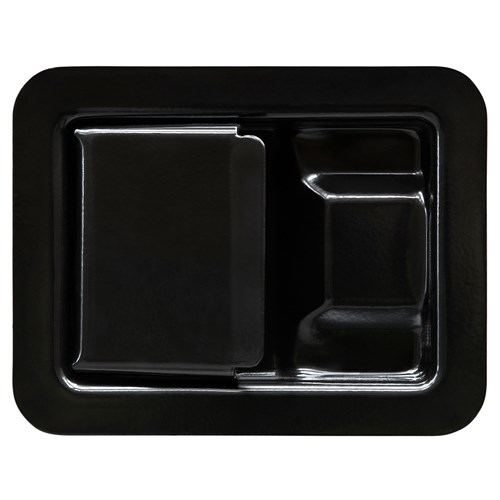
Recessed Door Handle (Self-Latching) Suits AOA, APO & AC4 Cabinets
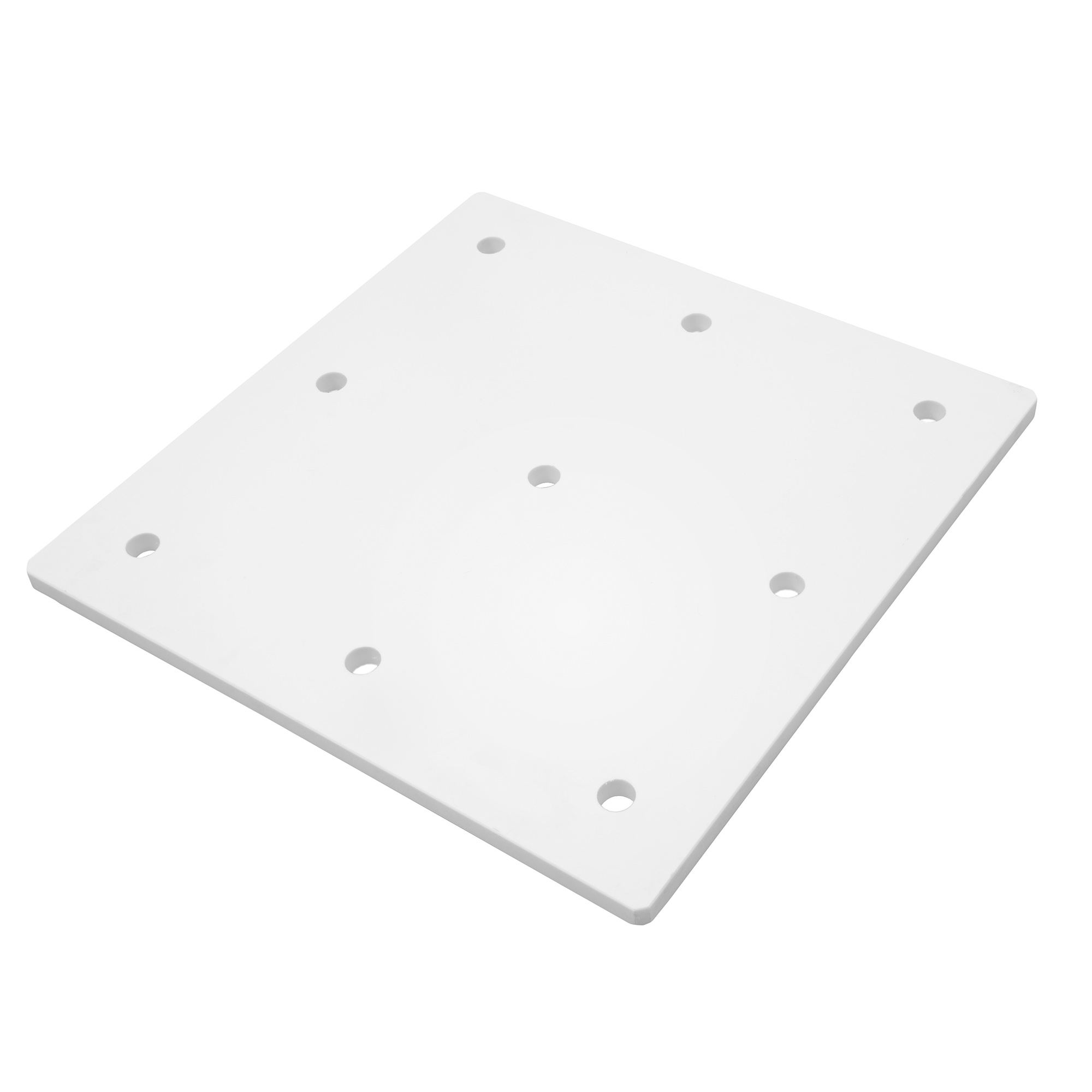
Pratt Shelf Suits PSPH 20L Cabinets
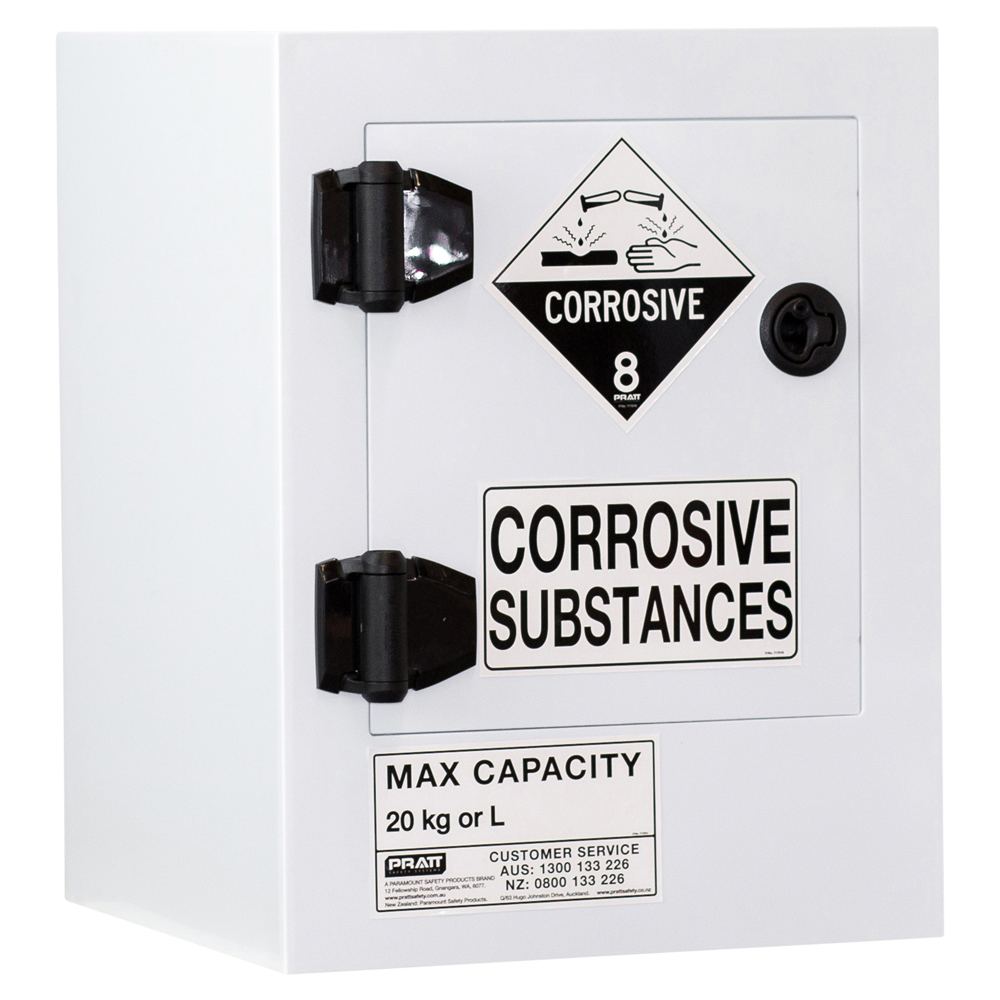
Corrosive Substance Storage Cabinet: Polypropylene - 20L - 1 Door - 1 Shelf
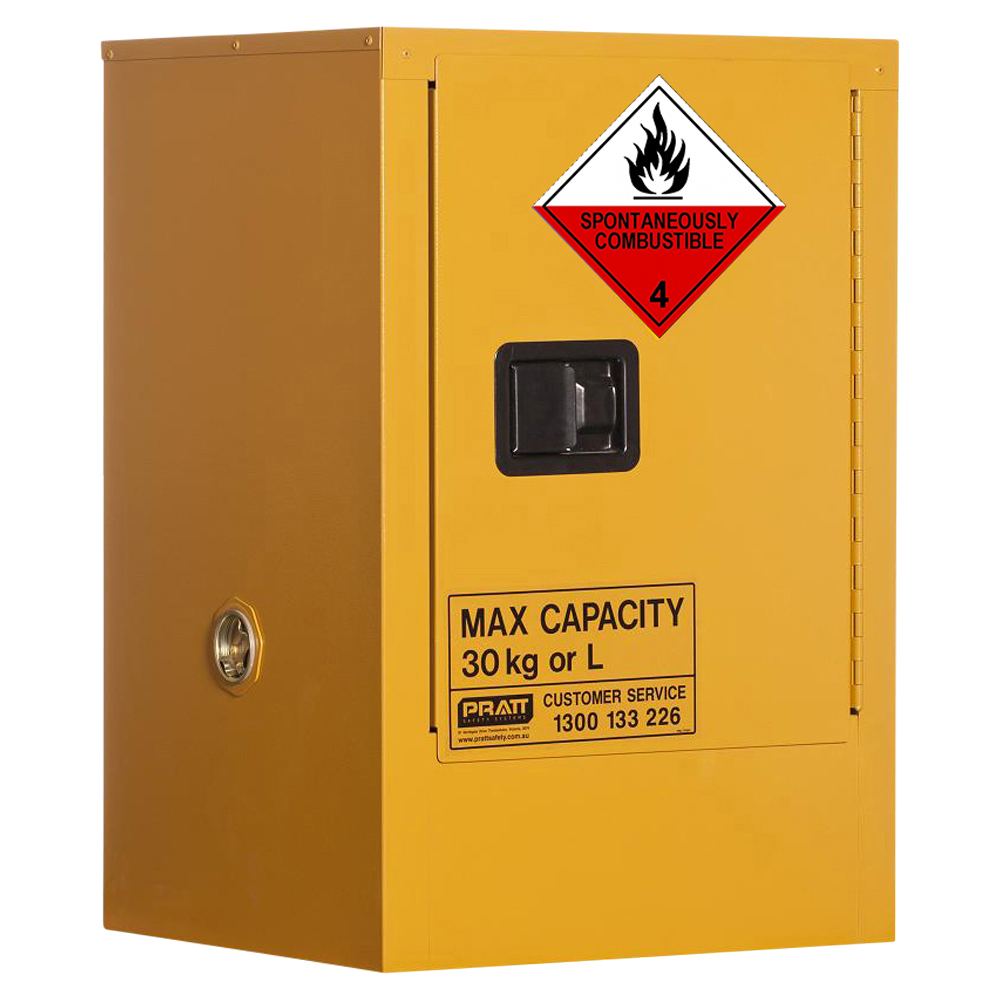
Class 4 Dangerous Goods Storage Cabinet: 30L - 1 Door - 1 Shelf
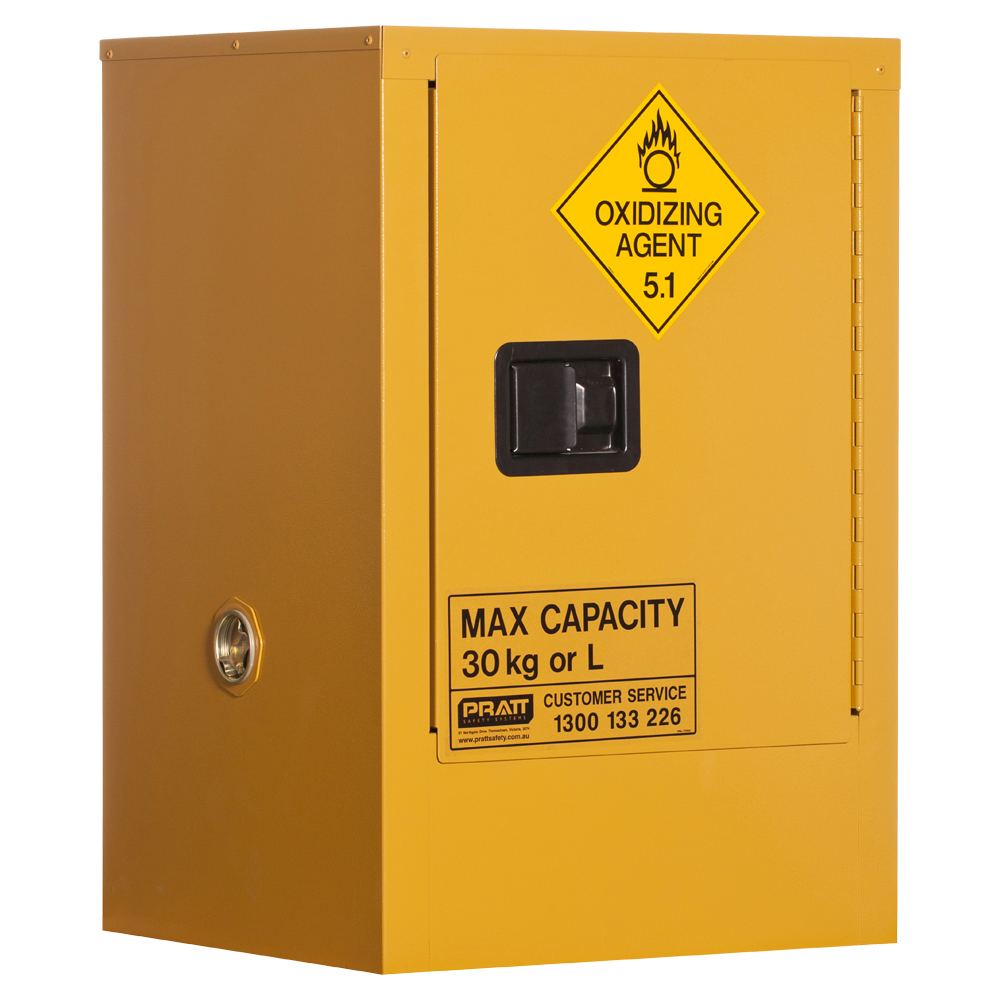
Oxidizing Agent Storage Cabinet: 30L - 1 Door - 1 Shelf
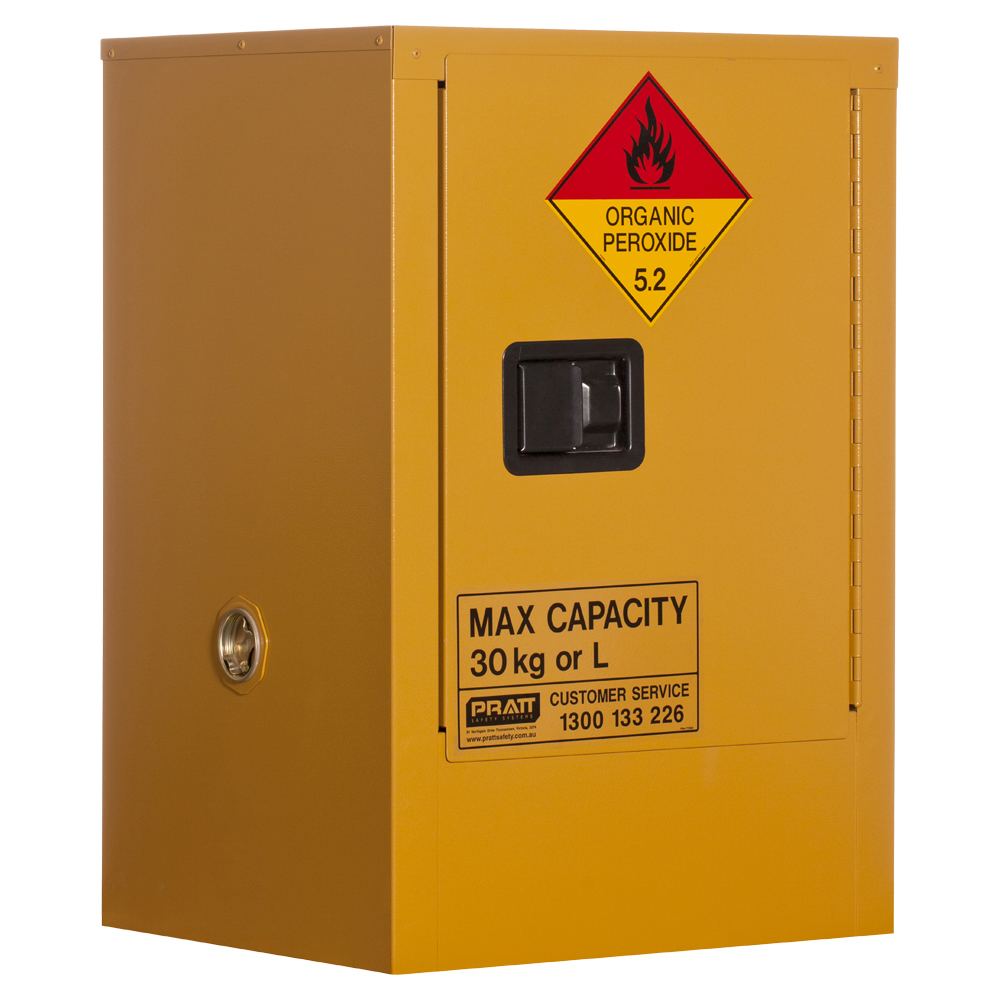
Organic Peroxide Storage Cabinet: 30L - 1 Door - 1 Shelf
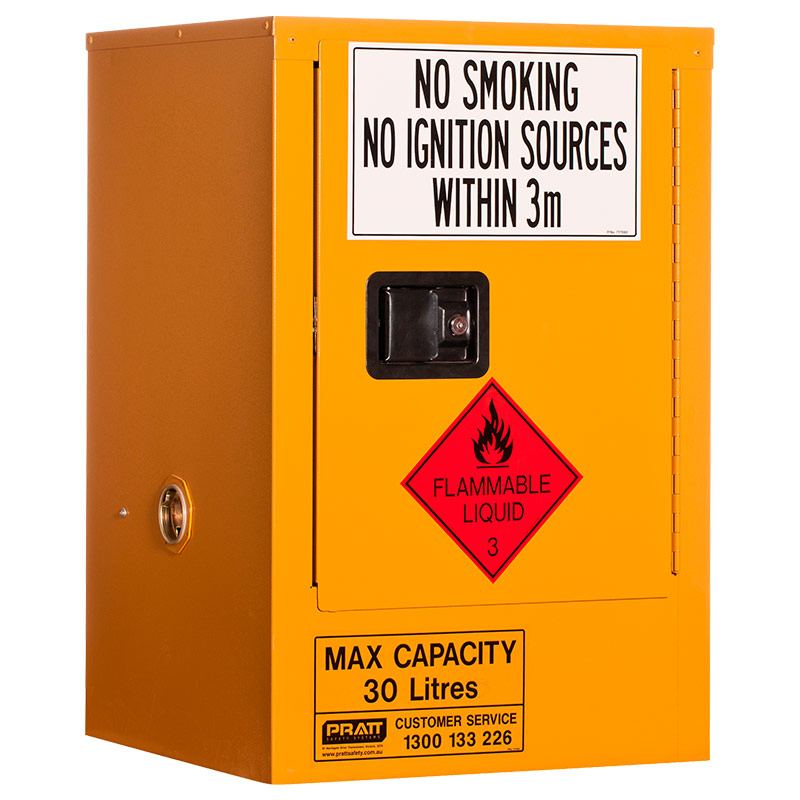
Flammable Storage Cabinet 30L 1 Door, 1 Shelf
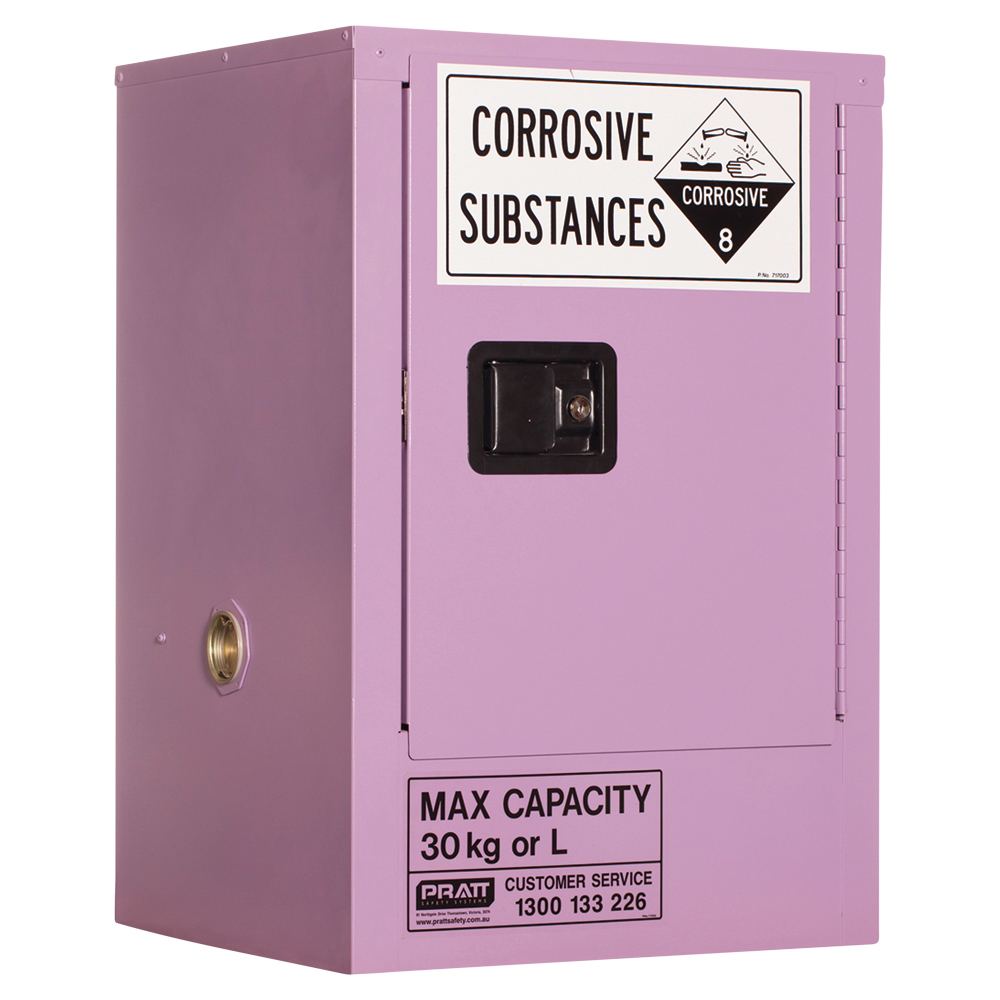
Corrosive Substance Storage Cabinet: Metal - 30L - 1 Door - 1 Shelf
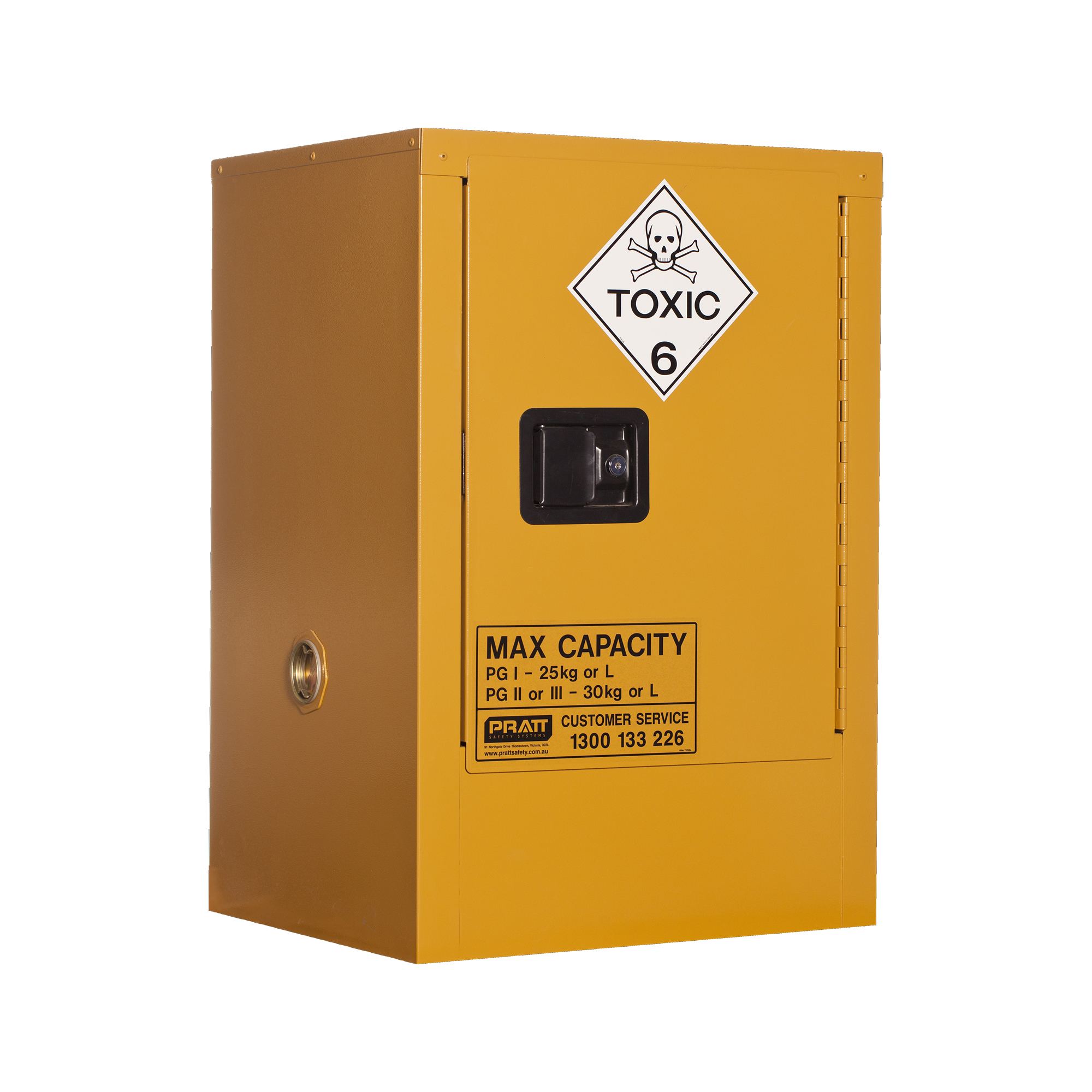
Toxic Substance Storage Cabinet: 30L - 1 Door - 1 Shelf
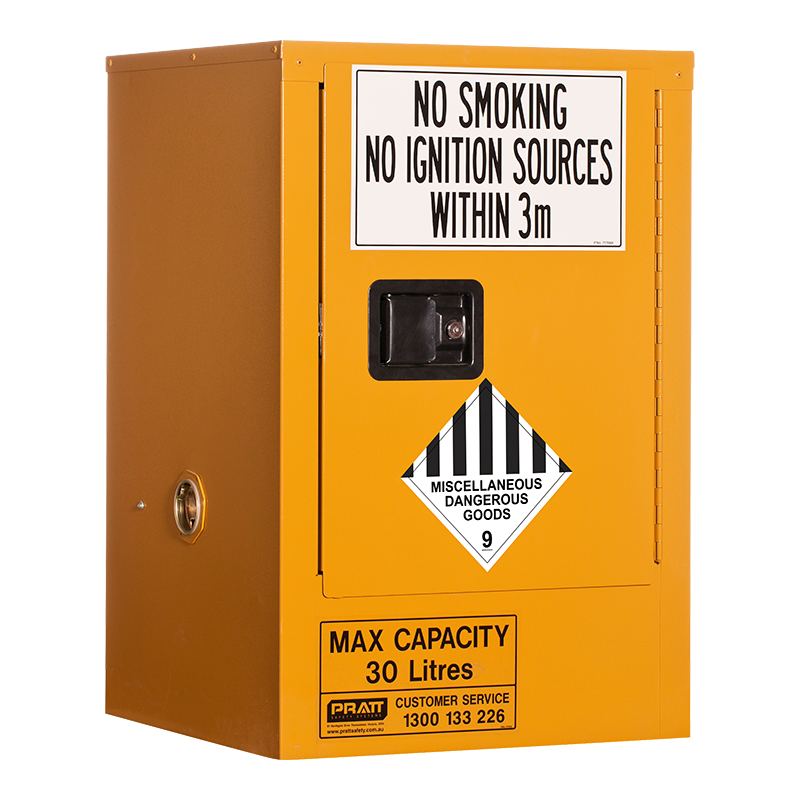
Miscellaneous Dangerous Goods Storage Cabinet: 30L - 1 Door - 1 Shelf
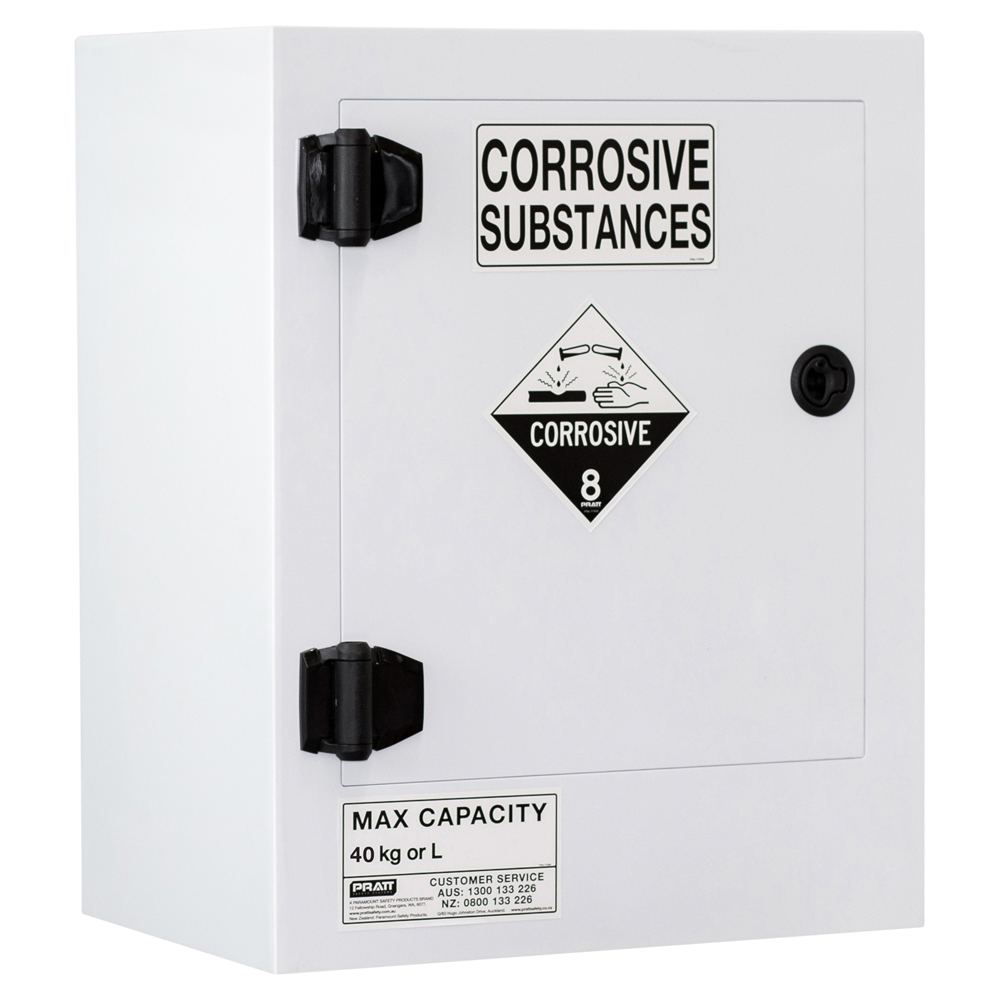
Corrosive Substance Storage Cabinet: Polypropylene - 40L - 1 Door - 1 Shelf
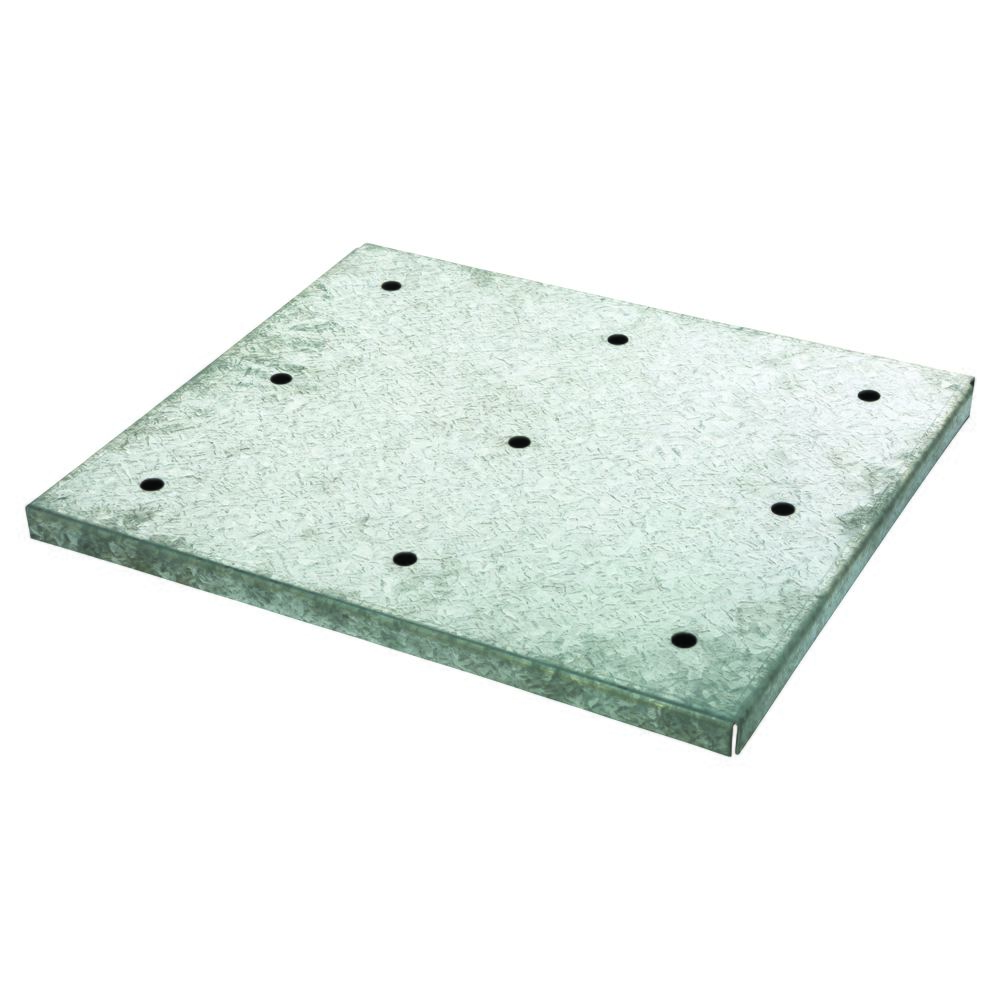
Pratt Shelf Suits 30L & 60L AS, AST, AOA, AC4, APO & CL9 Cabinets
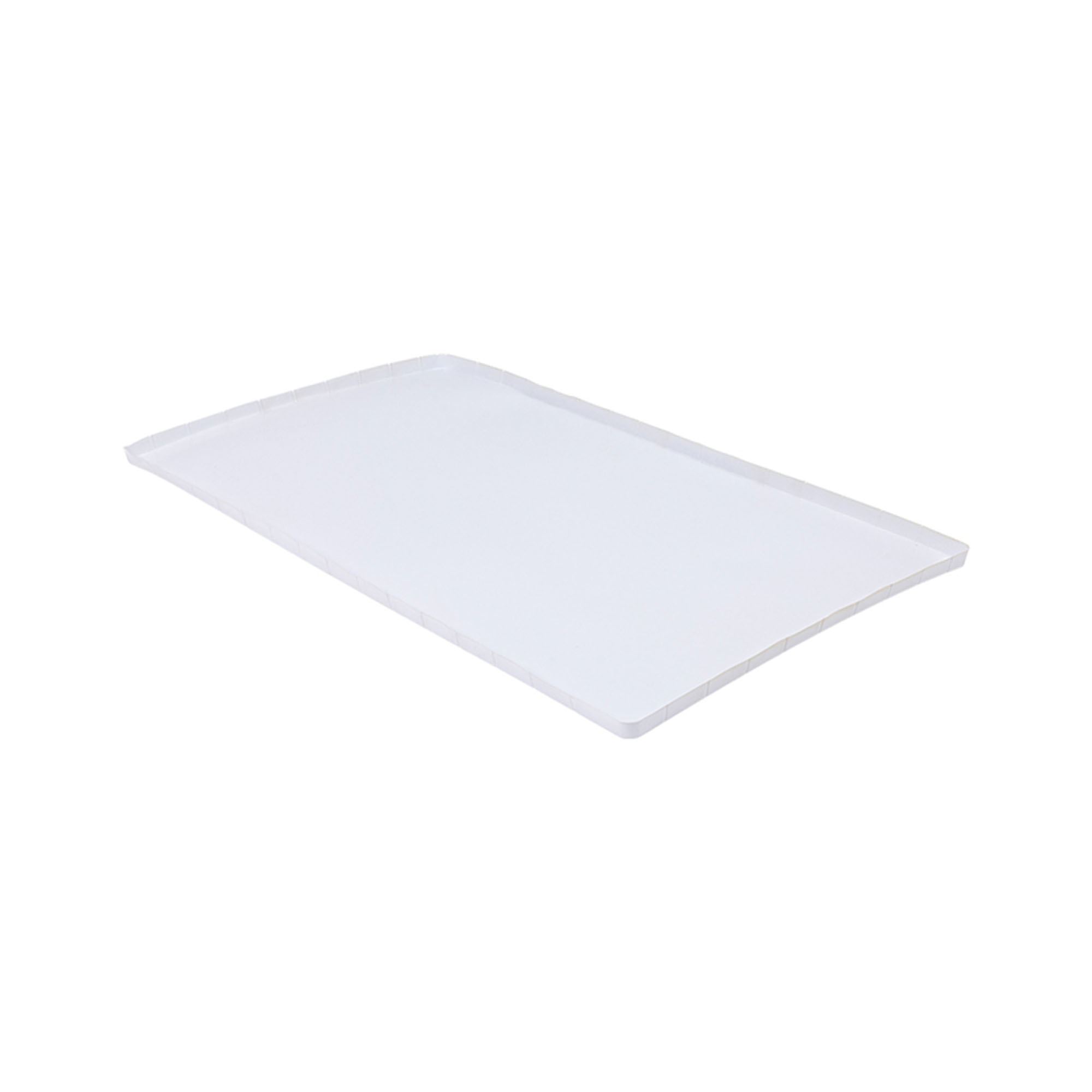
Tray. Suits ASPH 30L, 60L & 350L Cabinets
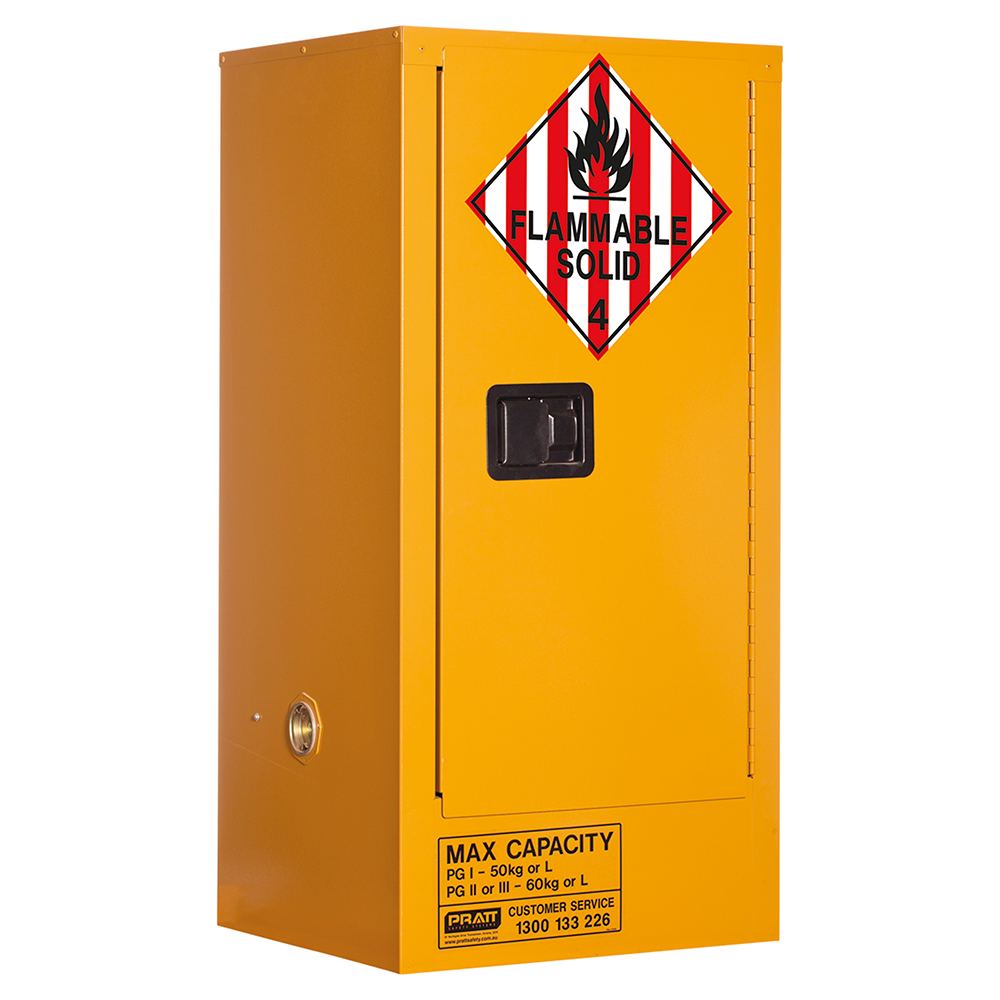
Class 4 Dangerous Goods Storage Cabinet: 60L - 1 Door - 2 Shelves
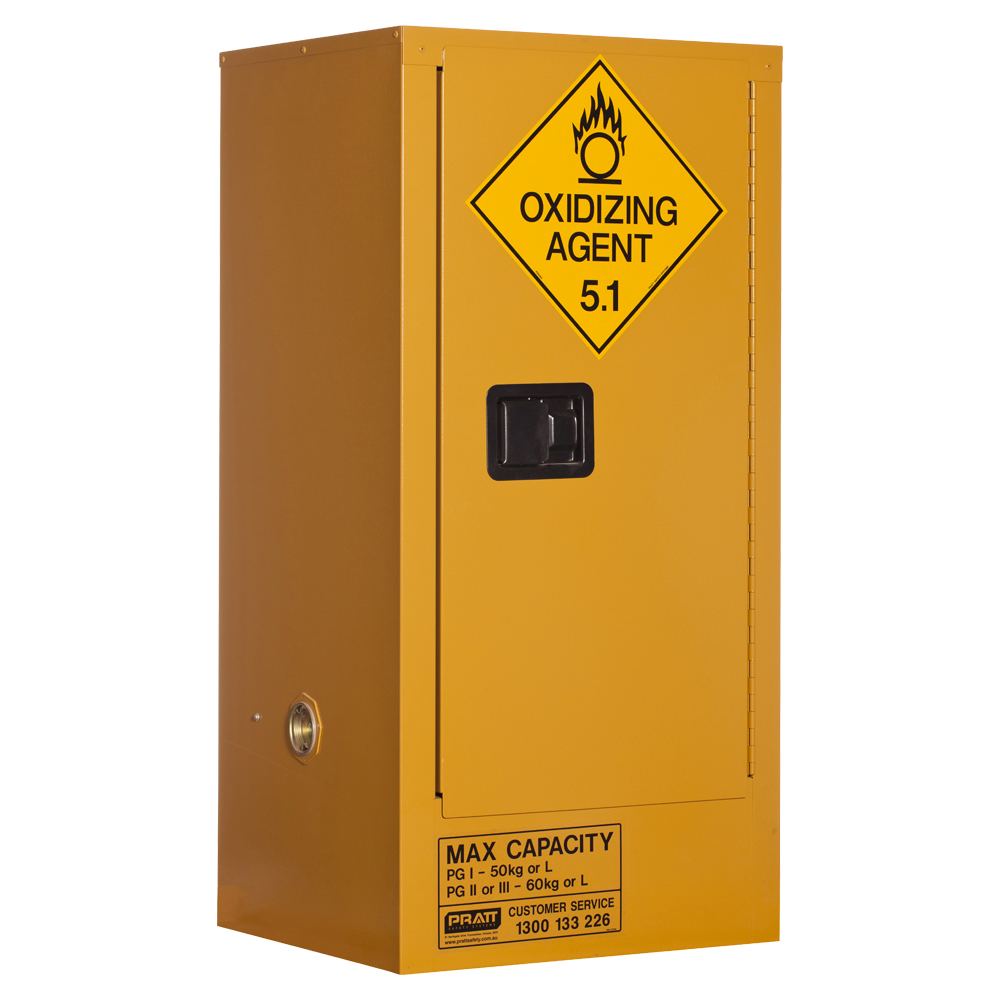
Oxidizing Agent Storage Cabinet: 60L - 1 Door - 2 Shelves
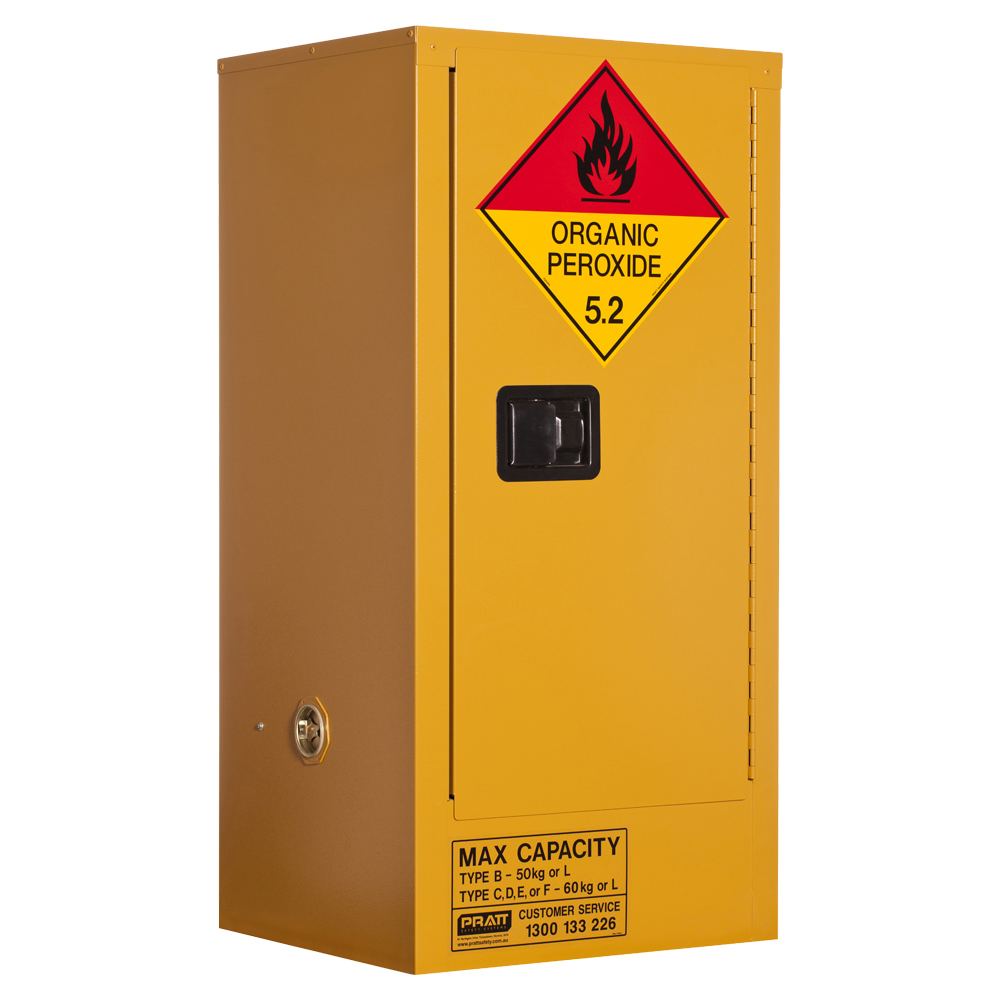
Organic Peroxide Storage Cabinet: 60L - 1 Door - 2 Shelves
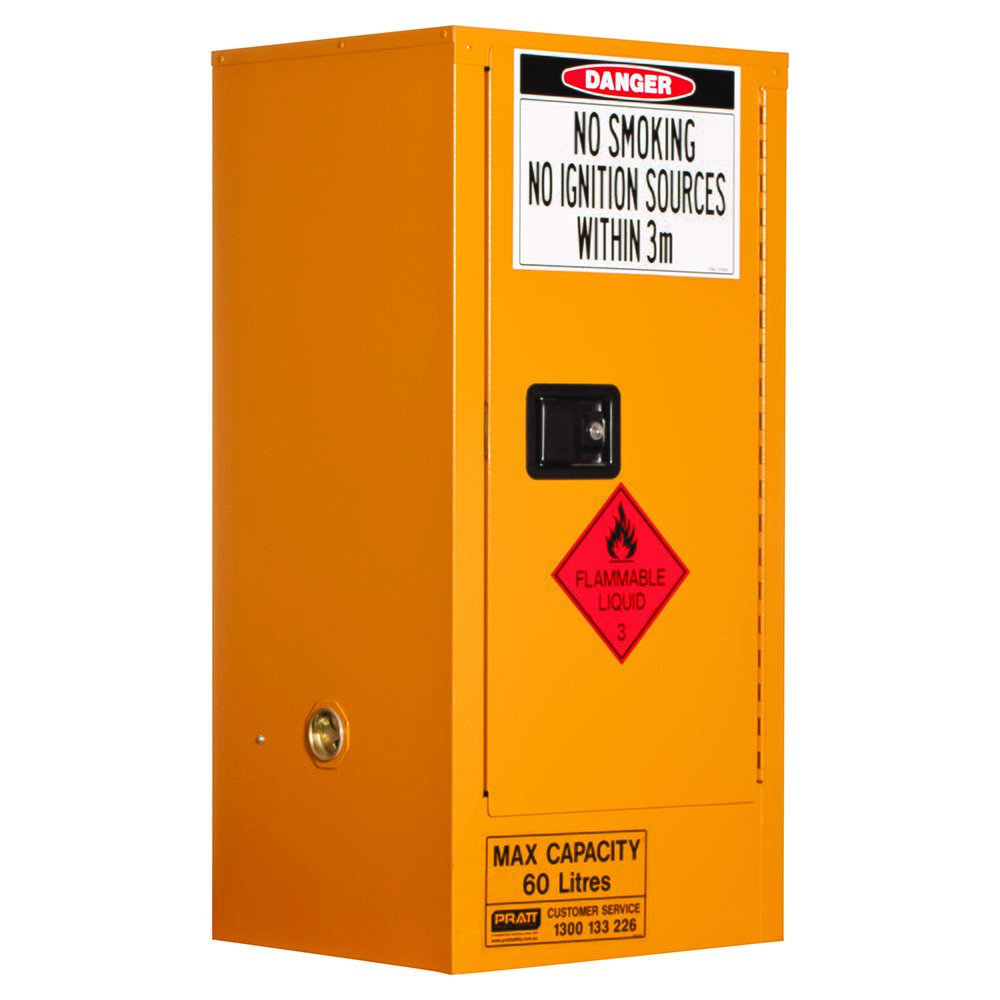
Flammable Liquid Storage Cabinet: 60L - 1 Door - 2 Shelves